 For Someone Who’s Got a Lot of Baggage in Their Life, Salvation isn’t an Easy Pill to Swallow
For Someone Who’s Got a Lot of Baggage in Their Life, Salvation isn’t an Easy Pill to Swallow
However attractive it is, even after accepting the Truth of God’s Grace, there’s still, in some instances, a debilitating weight of guilt and regret that prevents them from forgiving themselves. Hence, God’s Forgiveness is never really embraced. It may resonate from a theological standpoint, but when it comes to a legitimate release of all that translates into a perpetual state of depression, that never really happens and while they can quote Scripture there’s a conditional element they subconsciously attach to it and in the end, God’s grace is a temporary medication and not a permanent transformation.
It makes sense to a certain extent. From a human perspective, forgiveness is harder to give and even more difficult to accept the more heinous the infraction is. And while restitution affords a person the opportunity to go the extra mile and truly “make things right,” some things can’t be undone and accepted apologies, while healthy, can’t turn back time and remove from one’s memory their failures and the consequences of their sin. So, while John 3:16 is processed as an impetus to get right with God and act differently towards others, the True Package of God’s Grace is exchanged for something that is conditional and contingent upon a person’s performance and attitude.
The internal argument says, “Since I’m not really deserving of forgiveness and I’m acutely aware of my propensity to fall short of God’s Standard, Grace is received in direct proportion to my measuring up to what I define as a godly disposition.” Again, it’s medicinal and not transformational. Everything about what God offers is filtered through what they know to be true about themselves, hence, Salvation is not a permanent fixture. It can be lost and, though I’m forgiven, I’m still tainted and the joy that is referenced in Scripture is reserved for people who’ve not made the kind of mistakes I’m guilty of.
It may be that the person who doubts the enduring certainty of their salvation doesn’t struggle with feelings of guilt as much as they maintain in their minds the notion that there’s a standard of “goodness” that must be in place for Salvation to apply. A collection of behaviors, regimens and attitudes are assembled and it’s according to this list of prerequisites that God’s grace is doled out. Whatever the situation, the theological disposition is that while grace can’t be earned, it can nevertheless be maintained and if a person falls short of an adequate performance, they can lose their salvation.
But how good it good enough? This is where the pointless fallacy of this argument is revealed. If you fail to obey even a singular aspect of God’s Law, you’re guilty of breaking all of it (James 2:10). There are no “cheap seats” in Heaven, God doesn’t grade on a curve and even at your best, you cannot merit God’s mercy. You are saved by God’s grace and you are kept in that redeemed state by that same grace. Any attempt to assert a human effort as a sufficient means by which God’s involvement in your life can be earned or justified is to turn a deaf ear and a blind eye to the obvious insufficiency represented by the human condition (see 1 Thess 5:23; Phil 1:6; 1 Pet 1:5).
In short, it’s too good to be True.
I) Can You Lose Your Salvation?
In some ways, it’s a foolish question. Why would you want to lose your salvation? But in the mind of someone who might’ve been grown up in the church and then subordinated their faith to a host of immoral decisions for an extended period of time, salvation is not a fixture, it’s a mood. It’s a spike of religious activity. And if I can choose to abandon my faith and live my life in a way that is completely contrary to what God would command, then it makes sense that if I can choose to be saved, I can just as easily un-choose to be saved.
A number of brilliant minds have wrestled with this question, including William Booth, the founder of the Salvation Army. In their doctrinal statement they say:
Continuance in a state of salvation depends upon continued obedient faith in Christ.1
It’s not an uncommon doctrinal stance and it makes for some interesting conversations. But this is more than just a theological crossword puzzle – especially for those whose faith has been less than consistent. Bear in mind, we’re not talking about being frustrated with God for a short period of time or falling short in the context of being less than truthful or thinking something vulgar in a moment of weakness. What we’re talking about here is a season of prolonged rebellion with no sense of conviction or remorse – a complete and utter disdain for the Word of God as far as being resolved to ignore it and the One Who authored it.
So, let’s take this apart and see what’s there.
II) You Can’t Lose What You Didn’t Have to Begin With
Look at what it says in Matthew 7:21-23:
21 “Not everyone who says to me, ‘Lord, Lord,’ will enter the kingdom of heaven, but only the one who does the will of my Father who is in heaven. 22 Many will say to me on that day, ‘Lord, Lord, did we not prophesy in your name and in your name drive out demons and in your name perform many miracles?’ 23 Then I will tell them plainly, ‘I never knew you. Away from me, you evildoers!’ (Matt 7:21-23 [see also 1 Jn 2:19])
In other words, you can pose all day long, but in the end, God’s looking at your heart and you’re not fooling Him by saying one thing yet believing another.
And it’s not just “believing” that God exists and the whole death and resurrection of Christ actually happened. The demons believe that Christ died and came back to life (Jas 2:19). The difference between them and an authentic believer is the fact that the believer embraces the lordship of Christ and the Spirit of God lives within them whereas the demons combat God’s Authority and the Holy Spirit is kept outside the parameters of their inner being.
To “believe in your heart” means that your belief translates to more than an intellectual philosophy or a theological concept. It’s a Truth that plays out both practically and completely because it is something that you subscribe to with all that defines you. That’s what it means to believe something with your whole heart. Obedience is not something you do in an effort to conceal who you are. Rather, it’s something you do as an expression of who you are because you have the Spirit of God working in and through you (Phil 2:12-13). He lives in you, He guides you and it’s the Presence of His Spirit that defines you as one of His own (Rom 8:9).
It’s a Truth that plays out both practically and completely because it is something that you subscribe to with all that defines you.
III) Christ Himself Maintains Your Blameless Status Before God
Now, if you belong to Christ – if you are certified as someone who is genuinely born again based on His Spirit living in you – then it’s Christ Himself Who maintains your blameless status before God:
37All those the Father gives me will come to me, and whoever comes to me I will never drive away. 38 For I have come down from heaven not to do my will but to do the will of him who sent me. 39And this is the will of him who sent me, that I shall lose none of all those he has given me, but raise them up at the last day. 40 For my Father’s will is that everyone who looks to the Son and believes in him shall have eternal life, and I will raise them up at the last day.” (Jn 6:37-40)
27 My sheep listen to my voice; I know them, and they follow me. 28 I give them eternal life, and they shall never perish; no one will snatch them out of my hand. (Jn 10:27-28)
38 For I am convinced that neither death nor life, neither angels nor demons, neither the present nor the future, nor any powers, 39 neither height nor depth, nor anything else in all creation, will be able to separate us from the love of God that is in Christ Jesus our Lord. (Rom 8:38-39)
For I am confident of this very thing, that He who began a good work in you will perfect it until the day of Jesus Christ. (Phil 1:6)
23 May God himself, the God of peace, sanctify you through and through. May your whole spirit, soul and body be kept blameless at the coming of our Lord Jesus Christ. 24 The one who calls you is faithful, and he will do it. (1 Thess 5:23-24)
Now to him who is able to keep you from stumbling and to present you blameless before the presence of his glory with great joy, 25 to the only God, our Savior, through Jesus Christ our Lord, be glory, majesty, dominion, and authority, before all time and now and forever. Amen. (Jude 24-25)
III) Salvation is a Crescendo, Not a Fermata
In music, a crescendo is something that builds and builds and gets louder and more intense till it finally culminates in a dramatic resolution. A fermata, on the other hand, is just a note that is meant to hold indefinitely until the conductor cuts you off. Some want to think of their Salvation as a fermata. It’s just a noble status that remains in place until they either die or God calls them home. But Salvation is actually a crescendo. It’s an ongoing process that builds right up to the point where the orchestra concludes with a massive, Holy Ghost exclamation point (see Rom 8:23). Dr. John MacArthur elaborates on this in the context of Romans 8 by making the point that salvation is engineered to be something that targets an end result and not just a “current status.” And the only way we can be guaranteed a successful finish is if the journey to that final destination is guaranteed as well.
Then he spells out what that means (referring to Paul). Verse 29, “For those whom He foreknew, He predestined to become conformed to the image of His Son.” This is the heart and soul of predestination. Before time began God predestines the elect to be conformed to the image of Christ. Not to start, not to go part of the way but to go all the way to conformity to Christ. The doctrine of election is not election to salvation, it is election to glorification. If you understand that, then you understand the security of salvation. Those who were chosen before the foundation of the world were not chosen to believe the gospel only, they were chosen to be eternally glorified. The doctrine of election speaks to the end, not the process. Yes, He foreknew them, that is He predetermined to know them in an intimate way. He therefore predestined them to become conformed to the image of His Son. And then the process is broken down in verse 30, “Whom He predestined, He called.” That’s the saving call. “Whom He called He justified and whom He justified He glorified.” That is unalterable, verse 31. “What shall we then say to these things, if God is for us, who is against us? No one can thwart the purposes of God,” that takes you back to verse 28 again, that’s why all things work together for good. 2
The bottom line to all this is that it is God Himself Who facilitates every aspect of the Salvation Solution.
IV) The Roman Chain
You can see all of what Salvation results in by tracing the logic represented in Romans 5-8. You can envision it as a “Roman chain” and it looks like this:
- Peace with God
- Sanding in Grace
- Hope of Glory
- Assurance of Love
- Certainly of Deliverance
- Joy in God
The first link is “Peace with God.”
A) Peace with God
Therefore, since we have been justified through faith, we have peace with God through our Lord Jesus Christ…(Rom 5:1)
The “peace” that’s being referred to here is not “psychological tranquility.” It’s not a feeling as much as it means the opposite of “war.”
In your unregenerate state, you are an enemy of God. Consider the following passages:
And My wrath shall wax hot and I will kill you with the sword and your wives shall be widows and your children fatherless. (Ex 22:24)
When you have transgressed the covenant of the Lord your God which He commanded you and have gone and served other gods and bowed yourself to them, then shall the anger of the Lord be kindled against you and ye shall perish quickly from off the good land which He hath given you. (Josh 22:18)
Great is the wrath of the Lord that is kindled against us because our fathers have not hearkened to the words of this book to do according to all that is written concerning us. (2 Kings 22:13 [see also Dt 32; Ps 7:11; Is 5:25; 13:9; Rom 1:18; Eph 5:6])
I John 1:7 literally reads, “The blood of Jesus His Son keeps cleansing us from all sin.” In other words, the peace we have is an ongoing peace and not something that is conditional and therefore transient.3
While we tend to gloss over the significance of sin, it isn’t lost on God. While we might say, “I’m not at war with God,” your sin is a choice. And if by making that choice you are removing God from His throne and replacing Him with yourself, you are making yourself an enemy of God and your destiny is eternal destruction.
That’s what makes Romans 5:1 so significant! The fact that we now have “peace” with God means that God Himself as called a permanent truce because of the saving work Christ did on the cross. So, what was an all-out war a moment ago, is now a lasting peace and that, in and of itself, is a miracle!
This is link #1 but you should already be able to tell that, given the massive, lethal and impossible barrier that existed between you and God that is now gone…
Your greatest problem has been solved and everything short of that is nothing in comparison!
That’s pretty motivating!
B) The Grace in Which We Stand
Therefore, since we have been justified through faith, we have peace with God through our Lord Jesus Christ, 2 through whom we have gained access by faith into this grace in which we now stand. (Rom 5:1-2)
Our salvation is not dependent on anything we’ve done or anything we can do. It’s all through Christ! And because it’s through Him and not because of us, we can base our assurance of salvation on His Perfection and Consistency as opposed to our performance and obedience.
The second link, as far as what constitutes the permanence of our salvation is the “grace in which we stand.” In some ways, this is an elaboration of what was already discussed as far as the way in which our sinless status before God is maintained by God Himself (see “Christ Himself Maintains Your Blameless Status Before God”). We’re not moving in and out of a Divine Zone of God’s Grace and Favor. We’re “standing” in it. How are we able to stand? Through Christ. The very first part of the second verse shows that it’s “through Christ” and, if you think about it, everything is through Him. That’s why Salvation works the way that it does. It’s not because of anything we’ve done or anything we can do. It’s all by and through Him.
Another word to ponder is the word, “access.” In the Old Testament, the High Priest went into the Holy of Holies only once a year. God’s Holiness is that sacred and that unapproachable. But through Christ, we now have access to Him…
Therefore, brothers and sisters, since we have confidence to enter the Most Holy Place by the blood of Jesus, 20 by a new and living way opened for us through the curtain, that is, his body, 21 and since we have a great priest over the house of God, 22 let us draw near to God with a sincere heart and with the full assurance that faith brings, having our hearts sprinkled to cleanse us from a guilty conscience and having our bodies washed with pure water. (Heb 10:19-22)
“Let us draw near…”
That’s “access!” And, again, it’s not dependent on anything we’ve done or anything we can do. It’s all through Christ! And because it’s through Him and not because of us, we can base our assurance of salvation on His Perfection and Consistency as opposed to our performance and obedience.
That’s awesome!
C) The Hope of Glory
- Link #1: Peace with God
- Link #2: Standing in Grace
- Link #3: Hope of Glory
The “Hope of Glory.” That’s the third link and you can see it in the final portion of Romans 5:2…
2 through whom we have gained access by faith into this grace in which we now stand. And we boast in the hope of the glory of God. (Rom 5:2)
Salvation is not just a “status,” it’s a deposit – it’s a process that will culminate when we stand before Him in Heaven. You see this referenced in Ephesians:
11 In him we were also chosen, having been predestined according to the plan of him who works out everything in conformity with the purpose of his will, 12 in order that we, who were the first to put our hope in Christ, might be for the praise of his glory. 13 And you also were included in Christ when you heard the message of truth, the gospel of your salvation. When you believed, you were marked in him with a seal, the promised Holy Spirit, 14 who is a deposit guaranteeing our inheritance until the redemption of those who are God’s possession—to the praise of his glory. (Eph 1:11-14)
Dr John MacArthur elaborates:
When you were saved you were saved in hope, anticipating eternal heaven. When you were saved, you were fulfilling a predestined plan by which God had predetermined to bring you to eternal glory. That pledge was guaranteed to you at your salvation because you were given the Holy Spirit, who took up residence in your heart as the down payment, the arrabōn, the engagement ring, the first installment of your eternal glory and the Holy Spirit is given to every believer to guarantee the future fulfillment of God’s promised inheritance. That’s all a part of our salvation. That’s all a part of what it is to come to Christ. When you are told about the gospel and believing in Christ it is with the hope of heaven, the hope of eternal joy and bliss and blessedness and glory and perfection and you are secured in that hope by the purpose of God. You are secured in that hope by the intercession of Christ. You are secured in that hope by the indwelling seal of the Holy Spirit of promise.4
And it’s not just another aspect of salvation, it’s another core Truth that reinforces the permanence of your salvation. Dr MacArthur references it when he mentions how we are “secured” in the hope of glory by virtue of God’s Spirit living in us.
That’s the Hope of Glory!
D) Assurance of Love
The fourth link is the Reality of God’s Love.
Romans 5:5 says:
And hope does not disappoint us, because God has poured out his love into our hearts by the Holy Spirt, whom he has given us. (Rom 5:5)
You see the love of God described in Ephesians by Paul as something that is nothing short of overwhelming:
And I pray that you, being rooted and established in love, 18 may have power, together with all the Lord’s holy people, to grasp how wide and long and high and deep is the love of Christ, 19 and to know this love that surpasses knowledge—that you may be filled to the measure of all the fullness of God. (Eph 3:17-19)
And what’s truly amazing is that He loved us when we were yet sinners (Rom 5:8). Imagine how much easier it is to love someone who is now fully redeemed. And all of this is rooted in His Character and His Perfection! That’s why it’s immutable!
It’s worthwhile to park here for a moment and underscore the faithfulness of God. God is not capable of fluctuating. Look at Numbers 23:19:
God is not human, that he should lie, not a human being, that he should change his mind. Does he speak and then not act? Does he promise and not fulfill? (Num 23:19)
While we default more towards words like “trustworthy” and “consistent,” it’s the word, “faithful” that really captures the idea of true consistency. That’s our King! When He strikes an agreement, when He makes a promise, when He enters into a contract, you can rest assured that, because of His Character, there will be no change of heart. Again, this is why our salvation is secure. If it were a matter of us conducting ourselves in a way that merited His favor, be it in the context of obtaining His Grace or even sustaining it, we wouldn’t be able to do it. That’s why it’s so needful that our Redemption is built around a permanent and ongoing forgiveness based on the faithfulness of God. If it were founded on any kind of human effort or resolve, it would be an epic fail in every sense of the word.
E) The Certainty of Deliverance
Let’s recap for a minute…
“You contribute nothing to your salvation except the sin that made it necessary.”5
Jonathan Edwards said that years ago and he’s absolutely right.
We can’t earn our salvation. There’s nothing we can do to merit it because it requires a Divine dynamic. We can’t facilitate remedy to a problem that has eternal repercussions. God has to do it. And not only can we not obtain it, we can’t maintain a sinless status on our own either even with the Holy Spirit residing in our hearts.
1 Peter 1:5 says:
Who are kept by the power of God through faith unto salvation ready to be revealed in the last time. (1 Pet 1:5 [KJV])
God is faithful. That’s the bottom line. When He makes a promise, He doesn’t renege on it (Num 23:19). And, like we’ve already discussed, salvation isn’t just a status that applies to the present, it’s a process that culminates when we stand before Him. Again, we can’t facilitate something that includes an eternal dynamic. That’s what makes 1 Thessalonians 5:23 so significant:
May God himself, the God of peace, sanctify you through and through. May your whole spirit, soul and body be kept blameless at the coming of our Lord Jesus Christ. (1 Thess 5:23 [see also Phil 1:6])
We are “kept” blameless. And that’s not to say we don’t sin as much as it means that where sin increase, grace increases all the more (Rom 5:20).
We’re now looking at the fifth link in the “chain” illustration that Dr. John MacArthur uses to illustrate and elaborate on the permanence of our salvation. The fifth link is “Deliverance.”
Deliverance, in this case, is referring to the fact that, despite the fact that all of humanity is going to be judged (Hebrews 9:27; Rev 20:15) and many will be thrown into the lake of fire because of their refusal to accept God’s gift of grace and now stand before Him forever condemned, that’s not something we have to worry about.
1 Thessalonians 1:10 describes Jesus as the one “who rescues us from the coming wrath.” 1 Thessalonians 5:9 says:
For God did not appoint us to suffer wrath but to receive salvation through our Lord Jesus Christ. (1 Thess 5:9)
And how does God rescue us from His coming wrath? By His blood:
Since we have now been justified by his blood, how much more shall we be saved from God’s wrath through him! (Rom 5:9)
Romans 5 reads like a symphony of Truth that continues to crescendo, We start by having peace with God, then we stand perpetually blameless before Him in a state of constant grace, we then enjoy a sense of hope because of what God has in store for us in Heaven. Then we have this love that defies any kind of description. All of this leads to…
Deliverance.
Justification.
There’s a time coming when all of the humanity will have to answer for the way in which belligerently approached God and told Him to get out of His seat so they could dismiss any and all Absolutes save the absolute of themselves. It’s insanely inappropriate and worthy of a guilty verdict. But we stand justified before Him and in that way we are “delivered!”
That’s an awesome Truth, right there!
F) Joy in God
Six links. We’ve talked about five and now we get to the finale. Peace -> Grace -> Hope -> Love -> Deliverance and now…
Joy!
Joy is not an irresponsible kind of happiness that ignores things that are serious and justify a sober and solemn disposition. It’s a positive dynamic that’s not founded on circumstances as much as it’s founded on the One your circumstances answer to.
Look at the way Paul builds all of this in Romans 5:
But God commendeth his love toward us, in that, while we were yet sinners, Christ died for us.
9 Much more then, being now justified by his blood, we shall be saved from wrath through him.
10 For if, when we were enemies, we were reconciled to God by the death of his Son, much more, being reconciled, we shall be saved by his life.
11 And not only so, but we also joy in God through our Lord Jesus Christ, by whom we have now received the atonement. (Rom 5:8-11 [KJV])
“Much more…” “much more,” “And not only so…”
But we also have “joy…”.
Salvation is an amazing thing. You can’t study it without being overwhelmed by the goodness, the Power and the Character of God. Everything about the salvation we have is dripping with Divine Substance and Immutability. Not because of anything we’ve done or anything we could do, but because of Who God is and His love for us. It truly is “amazing grace” and while it is an occasion for inexpressible gratitude it also inspires unbridled joy.
Whereas before we were eternally condemned and practically aimless without any enduring sense of satisfaction or fulfillment, now we’ve got a guaranteed future after we’ve breathed our last, a true Purpose that infuses an element of meaning into every waking moment of our lives, a Power that moves and inspires beyond anything we could manufacture on our own and a Peace that persists regardless of our circumstances.
Every aspect of our lives has now been transformed and dramatically improved. And it’s a Divine Status that applies according to the Consistency and the Irrevocable Nature of His Character as opposed to the fallibility and the inevitable shortcomings represented by our performance.
From a human standpoint, it is to good to be true. There’s absolutely nothing any sort of human enterprise can do or become that which can satisfy the debt that is owed as a result of our moral and spiritual failures. Nor is there anything we can offer in the context of resolve or effort that can maintain a perpetual sinless condition. Any attempts to assert a human mechanism into the equation that yields a forgiven result renders the entire platform moot and utterly worthless.
On the other hand…
If it’s God Himself Who redeems, if it’s God Himself Who Sustains, if it’s God Himself Who dies, pays, conquers, reigns and restores…
Then it works! And that’s why Paul is coming out of his seat as he concludes his thought in Romans 5 with the incandescent exclamation point of pure joy!
You can’t obtain it, you can’t retain it and you can’t attain it.
“O For a Thousand Tongues” is an old hymn and while it may not get sung as often as it used to, it’s an appropriate way to end this series.
O for a thousand tongues to sing, my great Redeemer’s praise.
The glories of my God and King, the triumphs of His grace.
My gracious Master and my God, assist me to proclaim,
to spread through all the earth abroad the honors of Thy name.
Jesus, the name that charms our fears, That bids our sorrows cease,
‘Tis music in the sinner’s ears, to life and health and peace.
He speaks and listening to His voice new life the dead receive
the mournful broken hearts rejoice, the humble poor believe.
He breaks the power of canceled sin, He sets the prisoner free,
His blood can make the foulest clean, His blood availed for me.
Hear Him, ye deaf; His praise, ye dumb, your loosened tongues employ,
ye blind behold your Savior come and leap ye lame
1. “The Salvation Army is a Worldwide Church. We Believe:”, http://www.salvationarmyusa.org/usn/what-we-believe/, accessed October 17, 2017
2. “The Divine Guarantee of an Eternal Salvation, Part 2”, Dr. John MacArthur, https://www.gty.org/library/sermons-library/80-351/the-divine-guarantee-of-an-eternal-salvation-part-2, accessed November 20, 2017
3. “If We Confess Our Sins” John MacArthur, https://www.oneplace.com/ministries/grace-to-you/read/articles/if-we-confess-our-sins-9344.html, accessed October 19, 20173. “Links in the Chain of Security: Hope”, https://www.gty.org/library/sermons-library/90-186/links-in-the-chain-of-security-hope, accessed November 1, 2017
4. “Links in the Chain of Security: Hope”, “Grace to You,” Dr John MacArthur, https://www.gty.org/library/sermons-library/90-186/links-in-the-chain-of-security-hope, accessed November 6, 2017
5. Goodreads, Jonathan Edwards, https://www.goodreads.com/quotes/943186-you-contribute-nothing-to-your-salvation-except-the-sin-that, accessed October 20, 2017
A great deal of this content comes from Dr. John MacArthur who does a great job of connecting the practical and profound dots found in the book of Romans and throughout the whole of Scripture. I have those links referenced below as well as several other resources that serve as a great compliment to Dr. MacArthur’s sermon series.
 A recent article in Christianity Today entitled “Why Intelligent People Are Less Likely to Be Religious” does a great job of quantifying that headline so the reader walks away with a perspective that accommodates the truth that it’s not just a matter of intelligence, there are other factor at play. Here’s some additional observations:
A recent article in Christianity Today entitled “Why Intelligent People Are Less Likely to Be Religious” does a great job of quantifying that headline so the reader walks away with a perspective that accommodates the truth that it’s not just a matter of intelligence, there are other factor at play. Here’s some additional observations:








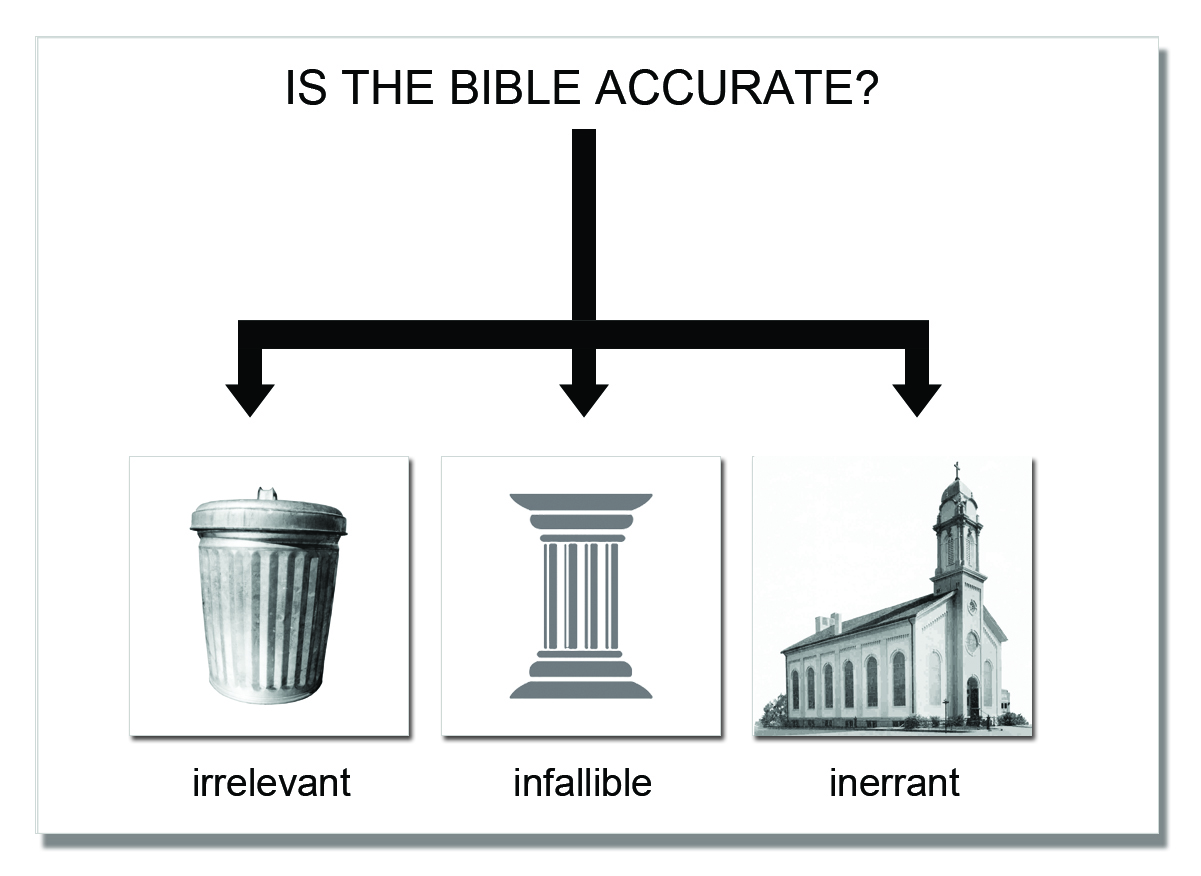
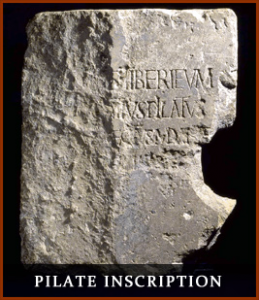



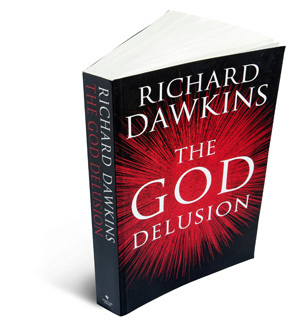
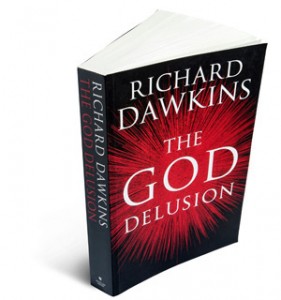









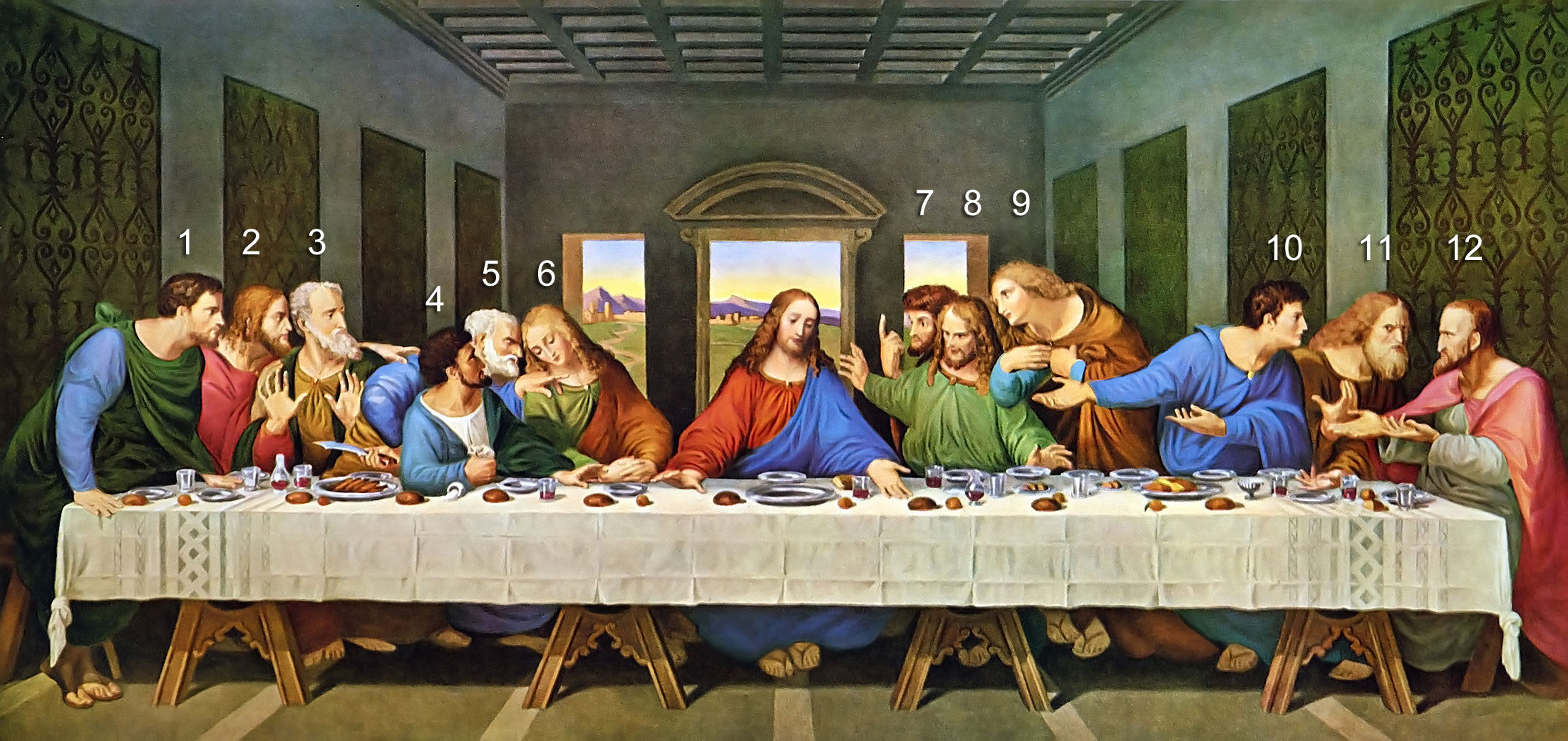
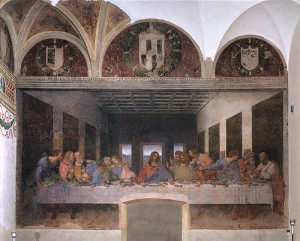
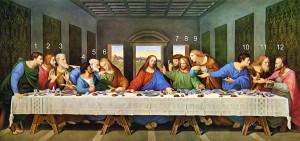




You must be logged in to post a comment.